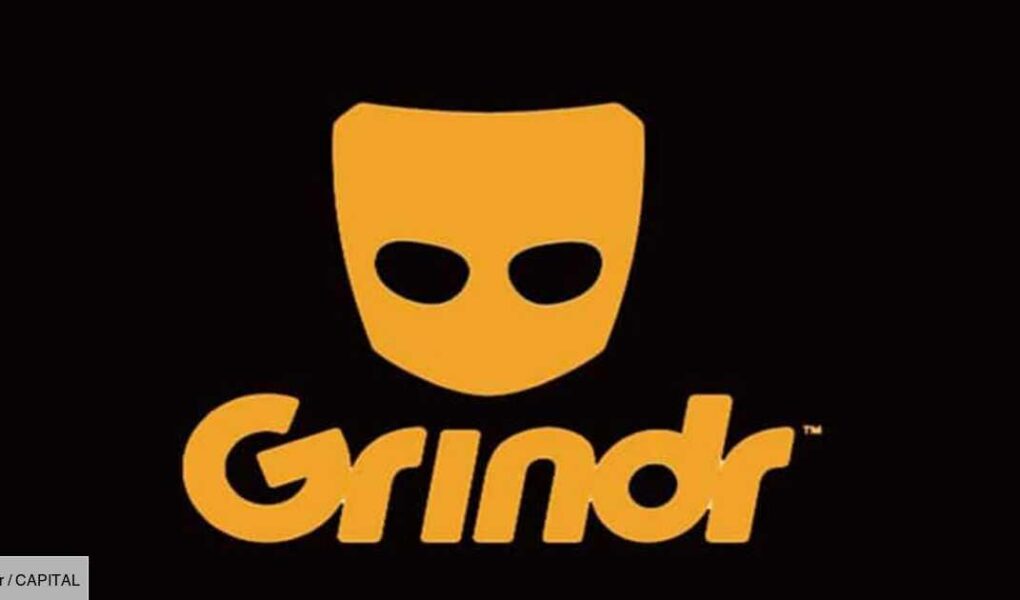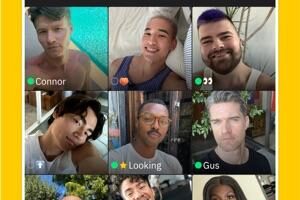Introduction: Navigating Social Connections in the Digital Age: The Rise of Facebook Grindr
In an era where digital landscapes shape our social interactions, the intersection of platforms often reveals surprising synergies. Enter the phenomenon of “Facebook Grindr”—a concept that encapsulates the blending of social networking cues with dating and connection frameworks familiar to users of platforms like Grindr. As society becomes increasingly interconnected through technology, the quest for companionship and community takes on new forms, inviting a closer examination of how established social media giants are influencing niche networking sites designed for specific identities and interests. In this article, we will explore what “Facebook Grindr” embodies, its implications for social dynamics, and how users navigate this evolving terrain in search of connection, visibility, and belonging.
Table of Contents
- Exploring the Intersection of Social Media and Dating Apps
- Navigating Identity and Community: The Role of Facebook in Grindr Interactions
- Maximizing Your Experience: Tips for Safe and Engaging Connections
- Balancing Privacy and Presence: Understanding User Settings and Data Protection
- Q&A
- Wrapping Up
Exploring the Intersection of Social Media and Dating Apps
In the rapidly evolving landscape of digital connectivity, social media platforms and dating apps have begun to intertwine in ways that reshape our understanding of relationships. Often, these platforms serve as windows into personal lives, blurring the lines between casual interactions and romantic intentions. Users find themselves navigating a complex web of profiles, posts, and shared interests, where catching someone’s attention is a carefully curated balance of authenticity and strategy. It’s not uncommon for individuals to leverage social networks to enhance their dating profiles, incorporating snapshots of their lives that highlight hobbies, travel experiences, and social circles, effectively transforming dating from a solitary experience into a community-centered endeavor.
Moreover, the shift towards inclusivity in both dating apps and social media fosters a culture where diverse identities are celebrated and explored. For instance, apps like Grindr extend their reach beyond mere dating, creating spaces for social interaction and community-building among the LGBTQ+ population. This phenomenon encourages users to connect over shared interests, activism, and events, while simultaneously maintaining the essence of dating. The resulting landscape can be summarized as follows:
| Platform Type | Focus | Key Features |
|---|---|---|
| Social Media | Networking and sharing | Posts, stories, groups |
| Dating Apps | Romantic connections | Matching algorithms, profiles |
| Hybrid Apps | Community and dating | Events, interest groups |
By analyzing this convergence, it becomes evident that not only do these platforms enhance our interactions but they also reflect societal changes in how we perceive intimacy, community, and identity. The ability to curate a social presence while seeking meaningful connections illustrates a nuanced landscape, giving rise to new narratives and opportunities in the realm of love and friendship.
Navigating Identity and Community: The Role of Facebook in Grindr Interactions
In the intricate tapestry of digital interactions, Facebook emerges as a significant thread that connects users of Grindr, both for practical purposes and for enhancing community dynamics. Within this multifaceted environment, individuals often navigate their identities in unique ways. Some key aspects of this interaction include:
- Identity Exploration: Users may seek validation and understanding from their Facebook networks, sharing their Grindr experiences and personal stories.
- Network Expansion: Through social media, connections are made that transcend mere dating, fostering friendships and support networks.
- Community Building: Facebook groups centered around LGBTQ+ identities provide a safe space for discussions, advice, and shared interactions related to Grindr.
Moreover, the interplay between these platforms allows users to define their identities within a supportive framework, leveraging Facebook’s more comprehensive social features. The relationship can be visualized in the following table, highlighting the roles of each platform:
| Platform | Role in Interaction |
|---|---|
| Grindr | Facilitates immediate connections and dating profiles. |
| Enhances community ties and provides social validation. |
Maximizing Your Experience: Tips for Safe and Engaging Connections
Creating meaningful connections on platforms like Facebook and Grindr requires a blend of openness and caution. To enhance your experience, prioritize safety by keeping both personal and sensitive information private. Utilize privacy settings effectively, ensuring that you control who sees your profile and posts. Before meeting someone in person, engage in conversation to gauge comfort levels and establish mutual interests. Always recommend meeting in public spaces, as this not only provides a safer environment but also encourages a more relaxed and natural interaction.
Engagement is key to building connections that feel genuine. Don’t hesitate to share your thoughts and experiences, but remember to listen actively to others as well. Here are some tips to foster engaging conversations:
| Tip | Description |
|---|---|
| Ask Open-Ended Questions | Encourages deeper dialogue and reveals shared interests. |
| Be Authentic | Show your true self to attract like-minded individuals. |
| Share Experiences | Brings a personal touch and opens up avenues for connection. |
| Show Respect | Creates a supportive environment where everyone feels valued. |
Balancing Privacy and Presence: Understanding User Settings and Data Protection
Navigating the intricate landscape of social media applications requires users to understand and effectively manage their privacy settings. Platforms like Facebook and Grindr often encourage users to be present and engage with their communities, but this can sometimes compromise individual privacy. By allowing users to customize their experience, these platforms offer a range of options, including:
- Profile Visibility: Users can choose who sees their posts, whether it be friends, the public, or a select group.
- Location Settings: On apps like Grindr, users can adjust their location to maintain anonymity or share it with a trusted circle.
- Data Sharing Preferences: Users can manage what data they share with third-party advertisers, enhancing control over personal information.
Understanding these settings is essential for balancing personal privacy with the urge to connect with others. Users should take the time to review their privacy controls regularly, fostering a safe online environment. Below is a simplified overview of common features that facilitate this balance:
| Feature | Grindr | |
|---|---|---|
| Friend Requests | Can restrict who can send friend requests | Can choose to display profile only to matched users |
| Share Location | Optional; can enable/disable location services | Default; can choose to hide location |
| Ad Preferences | Can customize ad settings based on interests | Limited customization available for targeted ads |
Q&A
Q&A on Facebook Grindr: Exploring the Intersection of Social Media and LGBTQ+ Dating
Q1: What is “Facebook Grindr”?
A1: The term ”Facebook Grindr” colloquially refers to the intersection or interaction between the social media giant Facebook and Grindr, a popular dating app tailored for LGBTQ+ individuals, especially gay men. This phrase often evokes discussions about how users navigate their identities, relationships, and social interactions on different platforms, blending casual dating with friend networking.
Q2: How do the user demographics of Facebook and Grindr differ?
A2: Facebook has a broad demographic reach, encompassing users of all ages, interests, and backgrounds, while Grindr primarily serves the LGBTQ+ community, particularly young adult men. This creates a unique contrast, as Facebook users often seek connectivity across various social and professional realms, whereas Grindr users typically focus on romantic or sexual connections within their specific community.
Q3: What are some benefits of using both platforms together?
A3: Utilizing both Facebook and Grindr can enhance social connectivity. Grindr users may leverage Facebook to build a more comprehensive social circle and foster friendships beyond dating. Additionally, sharing experiences and advocacy through Facebook can amplify the voices of the LGBTQ+ community, providing support and visibility that can strengthen bonds forged through Grindr.
Q4: Are there any privacy concerns associated with using both platforms simultaneously?
A4: Yes, privacy is a significant concern when merging identities on Facebook and Grindr. Users may be wary about how their dating profiles can intersect with their personal lives, especially since Grindr’s nature can invite scrutiny. It’s vital for users to manage their privacy settings carefully and be mindful of what personal information they share on both platforms to maintain boundaries.
Q5: How has the pandemic influenced the usage of these platforms?
A5: The COVID-19 pandemic has intensified digital interaction across all social platforms. Many users pivoted to virtual connections, using Grindr for dating and Facebook for staying in touch with friends and family. This shift encouraged creative approaches to both dating and maintaining relationships, with increased reliance on group chats, video calls, and community events hosted online.
Q6: In what ways do the two platforms influence perceptions of LGBTQ+ relationships?
A6: Facebook often portrays LGBTQ+ relationships through a broader societal lens, showcasing milestones such as engagements, weddings, and advocacy efforts, while Grindr focuses on immediate, often casual connections. Combined, they provide a richer narrative, helping to normalize various relationship styles, encourage dialogue, and challenge stereotypes within and outside the LGBTQ+ community.
Q7: What are some potential pitfalls of using Facebook Grindr?
A7: One potential pitfall is the risk of misunderstandings arising from mixed messaging—dating expectations on Grindr might clash with the more casual networking typically found on Facebook. Additionally, users may face judgment or misunderstandings from peers, adding pressure to navigate their online presence carefully. Ensuring clear communication of intentions can help mitigate these risks.
Q8: What does the future look like for social interactions on these platforms?
A8: As technology evolves, so too will the ways users interact with both platforms. Integration of features, new privacy measures, and a growing emphasis on inclusivity may sharpen the focus on user experience across social and dating landscapes. Ultimately, the future might see a more seamless blend of social networking and dating, allowing users to explore identities and relationships more fluidly.
Q9: How can users maximize their experience across Facebook and Grindr?
A9: To maximize their experience, users should maintain clear boundaries and communication across platforms. They can also seek to engage meaningfully with their communities by joining relevant groups or participating in discussions. Utilizing safety features and fostering authentic connections based on shared interests can enrich interactions and nurture both friendships and potential romantic encounters.
as the lines between social media and dating apps continue to blur, exploring how platforms like Facebook and Grindr coexist and shape user experiences offers profound insights into contemporary relationships and the LGBTQ+ community’s evolution.
Wrapping Up
As we navigate the complex interplay between social media and dating platforms, the emergence of “Facebook Grindr” highlights a significant shift in how we connect and communicate in the digital age. It challenges traditional norms, blurring the lines between friendship and romance in unprecedented ways. Whether you view it as an innovative tool for fostering relationships or a mere reflection of our evolving social landscape, one thing is clear: the way we interact online continues to reshape our understanding of intimacy and community. As we continue to explore this digital frontier, we must remain open to the possibilities and potential pitfalls that come with it, always seeking to find meaningful connections amid the noise. With each swipe, post, and message, we’re not just redefining our social circles; we’re reimagining the very essence of connection itself.



